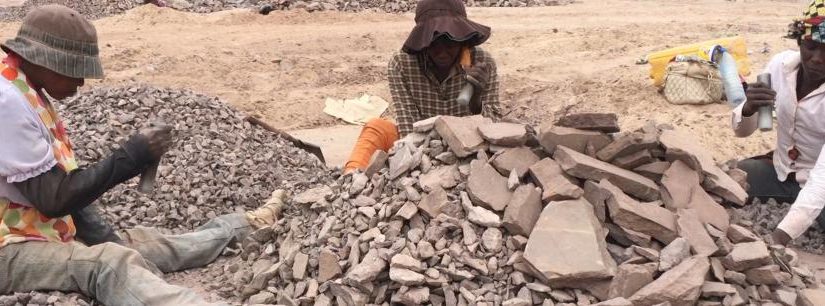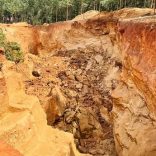Nigeria: Aiteo partners Mozambican firm Petromoc on 200,000bpd refinery
Watch: Why Southern Africa should make better use of ‘development minerals’

europa.eu/capacity4dev (File photo) Sand, gravel and salt may have a low price per tonne, but their value for domestic development and their potential for local employment creation is significant, especially when compared to the more talked about minerals like copper and gold.
The development minerals sector is an opportunity to create “strong local economies” in Southern Africa, one of the leaders of European cooperation with Mozambique said yesterday.
“The potential of the development minerals sector remains untapped, and the strengthening of the capacity of governments, civil society and operators, which are mostly small and medium-scale, will help sustain strong local economies,” interim head of cooperation at the European Union Delegation in Mozambique Geert Anckaert said.
He was speaking at the opening of a regional meeting on “Environment, community, health and safety in the use of minerals for development”, which, until Friday, is bringing together in Maputo 40 participants from Angola, Botswana, Lesotho, Malawi, Mozambique, Namibia, Rwanda, Swaziland and Zimbabwe.
The meeting forms part of the agenda of the Minerals for Development Program, an initiative of the African, Caribbean and Pacific (ACP) group of countries funded by the European Union and the United Nations Development Program (UNDP), which also implements the programme.
The EUR13.1 million, three-year course trains companies and industry institutions like construction firms, mining companies, training centres, universities and community groups.
Development minerals include plaster, salt, sand, gravel and granite – building materials needed for African infrastructure programmes.
In the first 18 months of the program, more than 1,500 people participated in 28 training and knowledge-sharing meetings, leaving the EU well satisfied “for supporting this capacity development program”, Anckaert said.
The African Union has also signalled the sector as a priority for the implementation of the 2063 African Development Plan agenda. It is increasingly recognized for its potential to stimulate economic development.
Small and medium-sized operators, however, often do not have the technical knowledge to access improved markets and technologies and have poor environmental, health and safety records, which the ongoing training aims to address.
- ‘‘Development minerals’ are mined, processed, manufactured and used locally in industries such as construction, manufacturing, and agriculture. While development minerals have the potential to support the livelihoods of millions of people and contribute to domestic economic growth, the sector has been neglected in development debates. ´[ec.europa.eu]












Leave a Reply
Be the First to Comment!
You must be logged in to post a comment.
You must be logged in to post a comment.